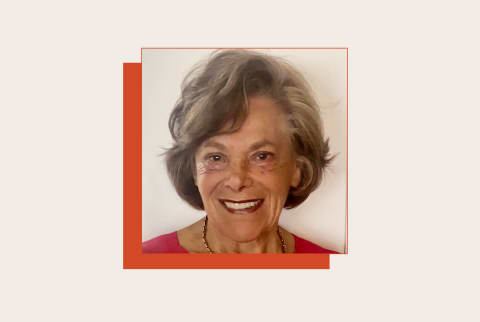Advertisement
3 Ways To Think Yourself To Better Health, From The Mother Of Mindfulness


We talk a lot about the mind-body connection here at mindbodygreen (hey, it's in the name!), but when you really dive into the research, the relationship is seriously fascinating.
Yes, there's clear science on how your thoughts can control your health, a large portion of which is conducted by Ellen Langer, Ph.D., an award-winning Harvard psychologist and author of The Mindful Body, who is also known worldwide as the "mother of mindfulness."
"The control we have over our health is enormous," she shares on this episode of the mindbodygreen podcast. Below, we highlight a few of her game-changing studies and how you can tap into your mindset for optimal well-being:
For enhanced energy
In an informal experiment (which she references in the book), "We asked a group of people to do 100 jumping jacks and to tell us when they got tired," she explains. "They tended to get tired around 67, so ⅔ of the way. Then we asked a different group of people to do 200 jumping jacks and to tell us when they get tired. They [still] got tired at ⅔ of the way, which is many more jumping jacks."
What does this mean? Your mindset can totally affect your energy levels. If you have a physical goal in mind, it's common to think you'll experience fatigue two-thirds of the way through it, even if your body actually has more energy to expend.
You should still respect your limits (don't push yourself to injury, but your mind has more power over your body than you think. "Whenever we're tired, we have a lot more in us than meets the eye at that moment," Langer adds.
For younger biological age
Now, we'd be remiss not to discuss Langer's famous 1979 "counterclockwise study1," in which she and her team retrofit a "timeless retreat" to 20 years earlier. "We had old men live there for a week as if they were their younger selves," she recounts. Their furniture, décor, magazines, news, sports, TV, and music all reflected the previous time period, and there were no mirrors in the space—only photos of their younger selves.
In just a week, "Their hearing improved, their vision improved, their memory improved, their strength improved, and they looked noticeably younger, and this was all without any medical intervention," Langer shares. It goes to show that you can, in fact, think yourself younger. "The control we have over our health is enormous, if only we didn't accept limits," she adds.
For healthy weight
We know regular movement is key to maintaining a healthy weight, but that doesn't mean you must hit the gym for an hour every single day. In fact, those who incorporate natural, frequent movement into their daily lives may wind up stronger and more mobile with age! But for some reason, so many of us think daily movement doesn't count as exercise.
Consider Langer's "chambermaid study2," in which she asked 84 female hotel cleaners how much they exercise. "In spite of the fact that they're exercising all day long doing their work, they see themselves as not getting any exercise," Langer recounts.
So her team randomly selected half of the group and taught them that their work does, in fact, count as exercise. "We simply showed them machines at the gym and how making a bed, for example, is like this machine." Other than that information, they did not change anything about their daily routines.
"By now seeing their work as exercise, there was a significant decrease in weight," Langer explains. "There was a change in waist-to-hip ratio, body mass index, and their blood pressure came down. We assume [this was] all because of the change in mindset."
The takeaway
Your mind controls your body, sometimes in underrated, seemingly unconscious ways. By becoming curious about your mindset, you may be able to "think" yourself to better health. Take it from the mother of mindfulness!
We hope you enjoy this episode! And don't forget to subscribe to our podcast on iTunes, Google Podcasts, Spotify, Amazon Music, or YouTube!